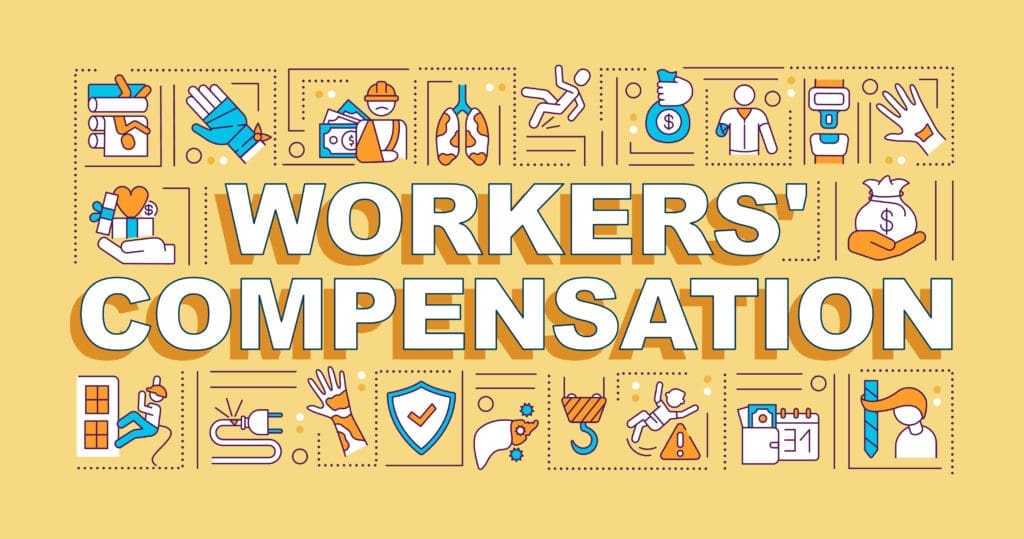Workers Comp Insurance Guide To Workers’ Compensation Insurance For Smbs (2023)
Workers compensation insurance, commonly known as workers' comp, is a critical aspect of the modern employment landscape. This insurance is designed to provide benefits to employees who are injured or become ill as a direct result of their job duties. It serves as a form of protection for both employers and employees, ensuring that workers receive the necessary medical care and financial support while also shielding businesses from potential lawsuits arising from workplace injuries. Let's delve deeper into the key components of workers comp insurance and its importance in the workplace.
What is Workers Compensation Insurance?

Workers compensation insurance refers to a type of insurance that provides medical benefits and wage replacement to employees injured during the course of their employment. This insurance is mandated by law in most states, ensuring that workers receive some level of protection without needing to prove fault.
Key Features of Workers Compensation Insurance
The benefits offered through workers compensation insurance can vary by state; however, several core features are typically included:
- Medical Benefits: Covers the medical expenses associated with the treatment of workplace injuries or illnesses, including hospital visits, surgeries, and rehabilitation.
- Wage Loss Benefits: Provides compensation for lost wages due to an inability to work resulting from injury. This is usually a percentage of the worker's regular salary.
- Disability Benefits: Offers financial assistance in the event an employee is unable to return to their previous job due to a disability resulting from their injury.
- Vocational Rehabilitation: This may include training for a different job if the employee cannot return to their original position.
- Death Benefits: In the event of a workplace fatality, workers comp insurance may provide compensation to the deceased employee's family or dependents.
The Importance of Workers Compensation Insurance
Workers compensation insurance is crucial for various reasons:
- Employee Protection: It ensures that employees are taken care of financially and medically if they suffer an injury on the job.
- Employer Liability Limitation: By providing coverage, businesses can protect themselves from potential lawsuits related to workplace injuries and illnesses.
- Encourages Workplace Safety: The existence of this insurance encourages employers to maintain safe working conditions to minimize the risk of injuries.
- Compliance with Legal Requirements: Most states require workers' comp insurance, and failure to comply can result in legal penalties.
How Workers Compensation Insurance Works
The process typically involves several steps:
- Incident Occurs: An employee is injured or becomes ill due to workplace conditions.
- Report the Injury: The employee must report the injury to their employer as soon as possible.
- Claim Filing: An official workers' compensation claim must be filed, documenting the injury and necessary treatment.
- Medical Evaluation: The employee may need to undergo a medical evaluation to determine the extent of their injury.
- Benefits Disbursed: If the claim is approved, benefits will be provided to cover medical expenses and lost wages.
Challenges in Workers Compensation Insurance
While workers' compensation insurance serves as a protective measure, it does face challenges:
- Fraudulent Claims: Some individuals may attempt to exploit the system, leading to increased costs for employers and potential legal ramifications.
- Inconsistent Regulations: Each state has its own workers' comp laws, leading to confusion for businesses operating in multiple states.
- Inadequate Coverage: Some policies may not cover specific conditions or types of injuries, leaving both the employer and employee vulnerable.
Conclusion
Workers compensation insurance plays a vital role in protecting both employees and employers in today’s working environment. By understanding its significance and the processes involved, businesses can better navigate the complexities of workplace injuries and promote a safer working environment for their employees.
1. What are the main benefits of having Workers Comp Insurance?
The main benefits of having workers comp insurance include the financial protection it offers to employees against lost wages due to injuries, access to necessary medical care, coverage for rehabilitation services, and death benefits for dependents in case of a fatal workplace incident. Additionally, it reduces the financial burdens on employers by safeguarding them from potential legal actions stemming from workplace injuries, while encouraging the maintenance of safe working environments, ensuring legal compliance, and fostering employee morale.
2. How does Workers Compensation Insurance affect employer liability?
Workers compensation insurance significantly limits employer liability by providing a no-fault system where employees receive benefits regardless of fault in an accident. This means that if an employee is injured on the job, they can access benefits without the need to sue their employer, thus protecting employers from costly legal claims and litigation. In exchange, employers are typically protected from lawsuits related to workplace injuries, creating a more stable and predictable legal environment for their businesses.
3. What should an employer do if an employee is injured?
If an employee is injured, the employer should first ensure the employee receives immediate medical attention. Following this, they should document the incident thoroughly, including details about how the injury occurred, any witnesses, and the condition of the workplace at the time of the accident. Next, the employer needs to assist the employee in filing a workers comp claim, ensuring all necessary forms and reports are completed accurately and submitted according to state regulations, which will then initiate the process for the employee to receive their entitled benefits.